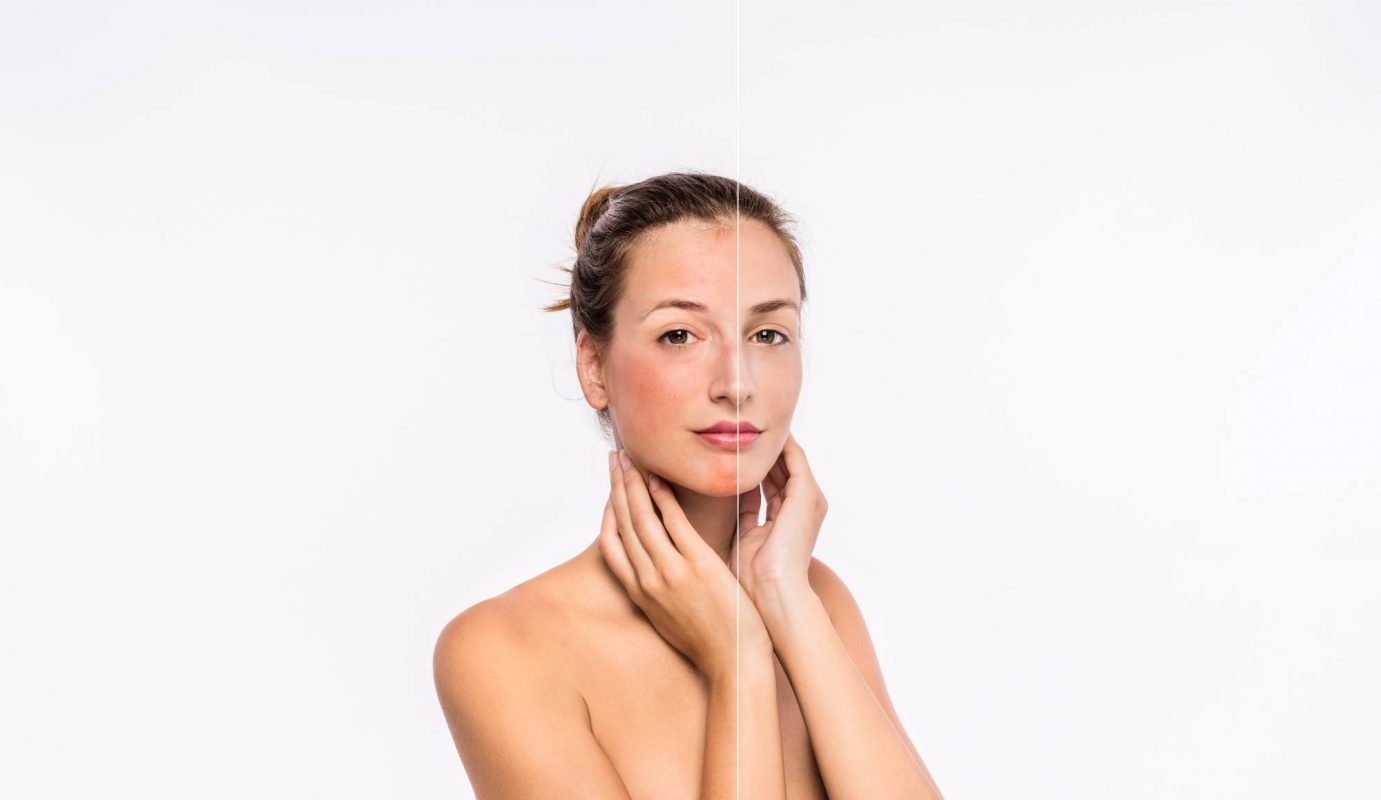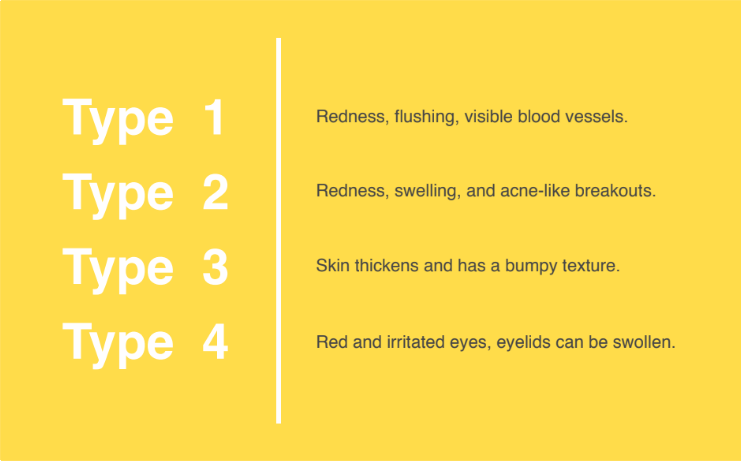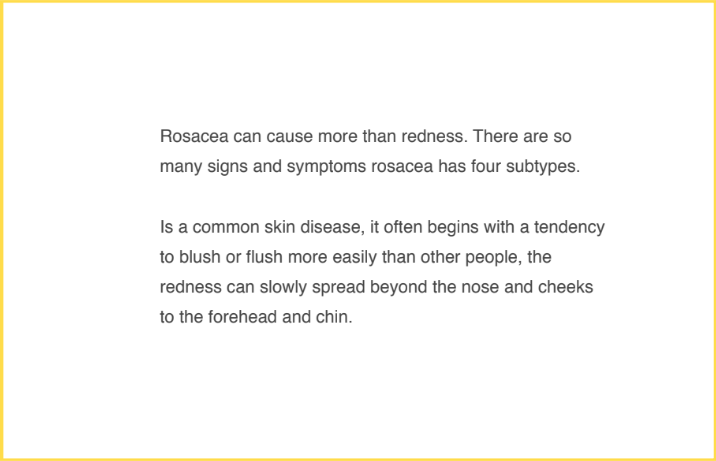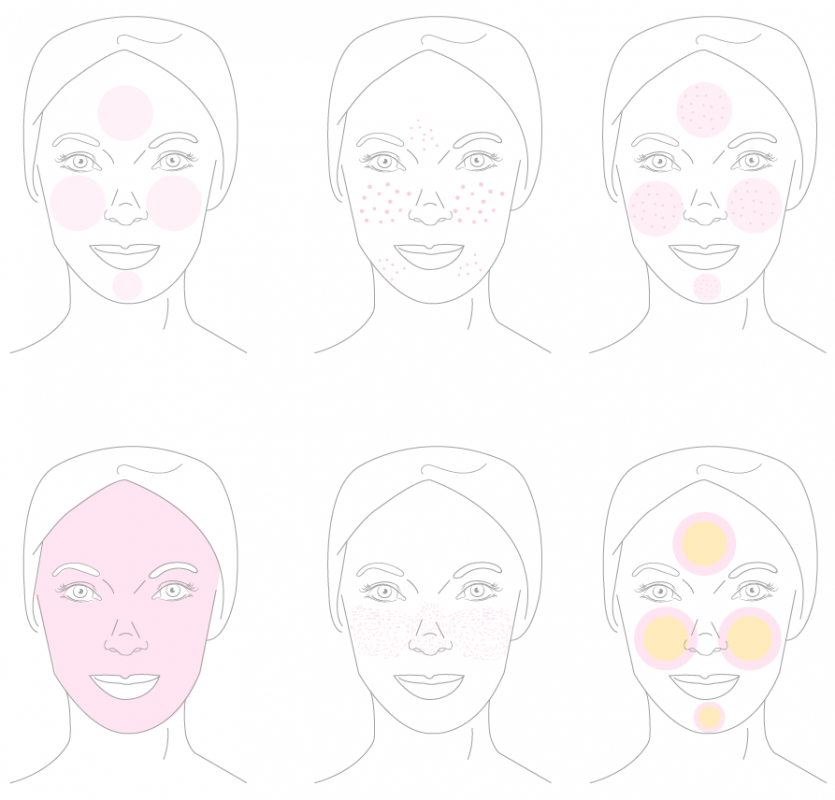
Rosacea: Symptoms and Effective Treatments
Rosacea is a chronic skin condition that primarily affects the skin of the face. Its symptoms include redness, inflammation, and sometimes papules and pustules on the face. The exact cause of these symptoms or why they worsen is unknown.
In this blog, we will explain in detail what rosacea is, its common symptoms, triggers, treatment options, and tips for managing this skin condition effectively.
What is Rosacea?
It is a chronic inflammatory skin disease that affects the face and other body parts. It manifests with visible, sensitive facial redness episodes that can become chronic overtime if not treated properly.
Although it is more common in people with fair skin and of European descent, it can affect anyone regardless of skin tone.
What are the Symptoms of Rosacea?
The symptoms of rosacea can vary from person to person. Here are the most common ones:
Facial Redness: This is the most prominent symptom and can resemble a sunburn.
Visible Blood Vessels: Small dilated blood vessels can be seen on the skin of the face.
Papules and Pustules: Some people develop papules (red bumps) and pustules (small pus-filled bumps) similar to acne.
Thickened Skin: The skin of the face can become thick and have an irregular texture.
Burning or Itching Sensation: The affected skin may feel hot, burning, or even painful.


What are the Triggers of Rosacea?
Several factors can trigger or worsen rosacea symptoms, including:
Sun Exposure: Intense sunlight and heat can trigger rosacea flare-ups, so it is recommended to use a broad-spectrum sunscreen.
Extreme Temperatures: Both intense cold and extreme heat can affect the skin.
Foods and Beverages: Alcohol, spicy foods, and dairy products can trigger symptoms in some people.
Stress and Intense Emotins: Stressful or emotionally intense situations can trigger episodes of rosacea.
What are the Treatments for Rosacea?
While there is no cure for rosacea, several treatments can help control symptoms and reduce flare-ups. At Infinitek, we suggest some:
Topical Medications: Creams and gels containing ingredients like azelaic acid can reduce inflammation and redness.
Oral Medications: Oral antibiotics may be prescribed in more severe cases to reduce inflammation.
Laser Therapy: Laser treatments can reduce redness and visible blood vessels.
Skincare: Using gentle and suitable products for sensitive skin can help control
symptoms.

Daily Skincare Tips
In addition to medical treatment, some strategies can help better manage rosacea in your daily life:
Use Sunscreen: Use sunscreen daily, such as our Ultra-protection Sunscreen, to protect your skin from the sun.
Avoid Triggers: Identify and avoid personal triggers, such as certain foods or stressful situations.
Gentle Skincare: Use Fragrance-free and non-irritating products to cleanse and moisturize the skin.
Use Suitable Makeup: Choose makeup that does not aggravate symptoms and is suitable for sensitive skin.
Rosacea is a chronic condition that can significantly affect the quality of life of those who suffer from it. However, with appropriate treatment and careful management of triggers, it is possible to control symptoms and reduce the frequency of flare-ups. If you experience persistent rosacea symptoms, it is important to seek the guidance of a dermatologist for an accurate diagnosis and a personalized treatment plan.
Check out our blogs and learn all about skin care.


